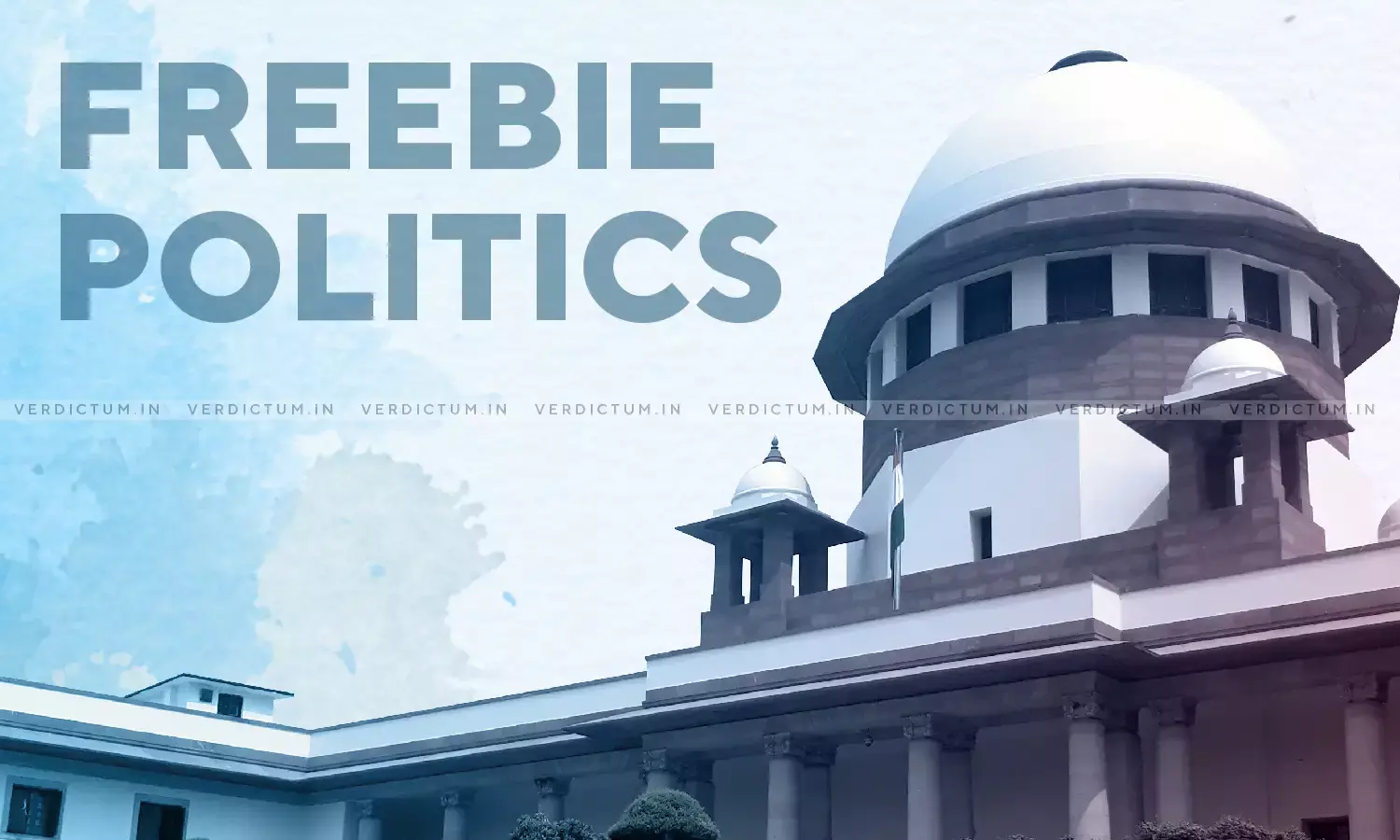Freebies Are Paid For By Tax Payers, But Majority Of Them Are Not Beneficiaries: Written Submissions By Petitioner In PIL

In his written submission before the Supreme Court in the plea against the announcement of freebies by political parties, petitioner-Ashwini Kumar Upadhyay has submitted that he is only questioning the wisdom of political parties to announce freebies recklessly, just to gain power, without regard to the avenues from where that political party will be generating the additional revenue, to meet the expenditure involved in the said freebies.
As per the written submissions, an amendment to the Representation of the People Act, 1951 is required whereby the announcement of a freebie will be made subjected to scrutiny by the Election Commission.
In the written submission filed by Senior Advocate Vikas Singh on behalf of Upadhyay, it is stated that freebies were announced by political parties in states, which were already reeling under a huge financial debt. It highlights that if a freebie is announced at the time of election, it would cause a very serious impact on the state's expenditure.
In his written submissions, Upadhyay has proposed that political parties should submit their manifesto to the Election Commission for its approval with regard to the financial implications of the promises made during elections.
It has been further stated that the manifesto shall contain a categoric statement as to how the political party intends to repay the existing debt of the State Government and only then the political party can provide for granting any freebies to the electorate.
He proposes that the Election Commission constitute an Expert Committee of independent financial experts to look into the proposal of each registered political party and approve the manifesto in a time-bound manner.
In yet another written submission by Senior Advocate Gopal Sankaranarayanan, it has been contended that the funds for freebies come from the tax payments made by citizens, but a majority of them are not the beneficiaries of these schemes. It was further submitted that if these schemes are not to secure the fundamental rights of the citizens, then it is discriminatory and arbitrary and violative of Article 14 of the Constitution.
The following are the key points highlighted in the written submission by Gopal Sankaranarayanan-
• that the powers of the EC under Article 324 are very wide.
• that the election Commission can be directed to issue an appropriate Order which implements a ban on "freebies" where a violation would lead to a withdrawal of the symbol and other consequences.
• that freebie is not a Constitutional or statutory obligation.
• that the Judgment In S.Subramaniam Balaji, (2013) lays down the wrong law and ought to be overruled.
• that the said Judgment overlooks the binding dictum of the Constitution Bench in Minerva Mills, (1980) that fundamental rights cannot be trumped by directive principles.
• that on the application of the Vishaka principle for filling up a void through guidelines, the Court had declined to interfere by saying that there is no void and that Section 123 of the Representation of the People Act holds the field, which, is an erroneous conclusion, because the Guidelines that were sought concerned the regulation of utilization of public funds, not on the declaration of a 'corrupt practice'.
The Supreme Court had issued notice on the PIL by Upadhyay in January this year.
Earlier this month, the Court had directed parties to suggest names for the constitution of a body to deliberate on the issues highlighted in the PIL. Solicitor General Tushar Mehta appearing for the Center had told the Court that the promise of freebies before the election distorts the decision-making of the voters. He also said that the country is heading towards an economic disaster due to the practice.
The Aam Aadmi Party (AAP) has approached the Supreme Court by filing an intervention application opposing the PIL stating that schemes for the socio-economic welfare of the deserving and disadvantaged masses cannot be described as 'Freebies.'

